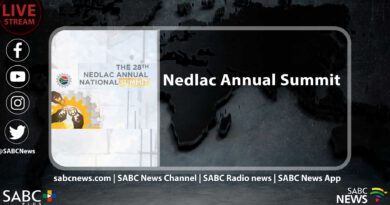Dear Nersa, see you in court – Eskom
Eskom has filed an urgent application in the Gauteng High Court to prevent a situation where it will be unable to generate any revenue from April 1 next year due to a decision made by energy regulator Nersa that 50% of its voting board members opposed.
It was only the casting vote of the acting chair, Advocate Fungai Sibanda, that tipped the scale towards the rejection of Eskom’s latest tariff application “in favour of a fanciful tariff determination process that is simply incapable of lawful completion in time for the 15 March 2022 deadline”, says Eskom CFO Calib Cassim in an affidavit filed in support of the application.
Cassim explains that this may leave the power company without any lawful way to charge tariffs and generate revenue, which will require government to cough up as much as R300 billion to keep Eskom going for the next financial year.
Current rules followed
Eskom submitted its tariff application for the period April 1, 2022 to March 31, 2025 on June 2 this year, says Cassim. That was done in terms of the current set of rules that has been used before, which will only be invalidated when Nersa publishes new rules after duly consulting with stakeholders.
The submission was done timeously to give Nersa ample opportunity to allow for public participation, including conducting public hearings and deliberating on the application and stakeholder comments before making a determination in time for the tabling in parliament.
In terms of the rules of its own Minimum Information Requirements for Tariff Applications, Nersa is supposed to return an application to Eskom within 14 days should it be found to be non-compliant. This did not happen.
In fact, Nersa failed to process the application and the first formal step to deal with it came on September 30 when the energy regulator decided to reject it and invite Eskom to prepare a new application in accordance with a future method that still has to be determined.
Read: Nersa proposes complete overhaul of Eskom price determination
It had published a consultation paper about the principles underlying such a new method a few days before the Nersa board meeting.
‘Interim methodology’
Realising that the new methodology would not be ready in time for the 2022/23 tariff determination, Nersa decided that Eskom’s new application for that year should be done in terms of an interim methodology based on the consultation paper.
“Nersa has seemingly come up with the idea of an interim arrangement, in terms of which, as reflected in the 30 September media statement, it seems to expect Eskom to begin now to prepare an interim application in terms of unspecified ‘principles of a new approach that is under consideration’,” says Cassim.
“It has given no guidance as to what those principles might be. It has simply informed Eskom by letter dated 5 October 2021 that it ‘Is requesting Eskom to submit a new application in line with the revised principles which are to be approved once the consultation and internal Nersa approval processes are finalised’.
“Eskom has no way of knowing what methodology will govern its tariff application and therefore is unable to identify what issues to address in its application,” says Cassim.
To add insult to injury the Department of Mineral Resources and Energy has indicated that it is reviewing the Electricity Regulation Act (ERA) and the Electricity Pricing Policy (EPP) that the methodology derives from. Cassim says it does not make sense to change the methodology before there is clarity about any changes that may follow in this regard.
Read: Same old funding model can’t keep South African cities going or serve resident
Cassim says “the logical place to start, and indeed the only lawful place to start, is with the amendment of the ERA and EPP to give effect to the new approach”.
“This would then guide the making of future subordinate legislation.”
The Nersa decision was irrational, procedurally unfair and unlawful, argues Cassim.
“The new methodology consultation paper is not particularly clear, but the one feature of it that is clear is that it proposes to reject the current approach of using ‘allowable revenue’ to determine Eskom tariffs,” says Cassim.
The R50bn issue
Several earlier court orders and Nersa decisions however provide for a total of about R50 billion due to Eskom because of flawed Nersa decisions.
This must be added to its allowable revenue and a move away from the concept of allowable revenue will make these orders incapable of being implemented and deprive Eskom of these amounts.
This would be in line with the alternative proposal supported by half of the voting Nersa board.
Of ‘national importance’
It is of “national importance because without a validly determined tariff for 2022/23, Eskom will be financially unsustainable”.
“Eskom will have zero revenue for the FY 2022/23. The required revenue to allow Eskom to continue operating will be more than the total allowable revenue for the 2021/22 financial year of over R260 billion,” says Cassim.
“Moreover, because more than R350 billion worth of Eskom debt is linked to over R900 million in interlinked national government guarantees, if Eskom’s finances collapse, the finances of the entire National Government are at risk.”
Eskom will approach the Deputy Judge President with a request to schedule the hearing of the urgent application before December 1, assuming that a ruling will be forthcoming within two weeks thereafter to ensure the completion of the tariff determination in time for the tabling in parliament by March 15.
Nersa will be hosting virtual stakeholder workshops about its new proposals on October 18 and 22.
Read: Electricity: Who pays more?
Source: moneyweb.co.za


